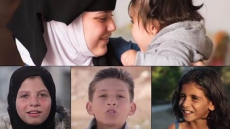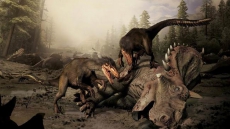WASHINGTON — Barack Obama was concluding a once-unimaginable televised speech to the Cuban people about the power of protest and democracy, capping it with a Spanish-language version of his 2008 rallying cry: "Yes, we can."
American television networks wasted no time cutting away. The instant he finished, cameras shifted to the chaos in Belgium. The president's opponents urged him to forget the Cuba trip — and get home immediately to deal with the terrorism crisis.
If an entire presidential legacy could be distilled into one moment, a solitary snapshot in time that captures the spectrum of triumphs and tragedies of a foreign-policy track record, this might have been it.
Obama delivered a historic speech to Havana's Grand Theatre with hundreds in the audience; Cuban leader Raul Castro watched from the balcony; and millions tuned in at home.
He began with a statement on the Belgium attacks, before moving onto the main topic: Declaring he was there to bury the last vestiges of the Cold War in this hemisphere.
The president said this new relationship required honesty, even about one another's perceived shortcomings. Castro had just mentioned the U.S. lacking universal access to health care and higher education.
Obama added: Americans welcome this kind of debate and discussion.
He pointed to how his own life was shaped by civil-rights protest. Obama noted that the year his father arrived from Kenya, it was illegal for him to marry his white mother in many U.S. states, and when he was a child southern schools were segregated.

"But people organized. They protested. They debated these issues, they challenged government officials," he said, to an audience including government officials from a one-party state.
"And because of those protests and because of those debates and because of popular mobilization, I'm able to stand here today as an African-American and as president of the United States."
The audience cheered.
He went on, hailing even the messy ongoing U.S. election that has prompted so much worldwide ridicule and consternation: "It isn't always pretty, the process of democracy. It's often frustrating. You can see that in the election going on back home.
"But just stop and consider this fact about the American campaign that's taking place right now: You have two Cuban-Americans in the Republican party running against the legacy of a black man who's president, while arguing that they're the best person to beat the Democratic nominee, who will either be a woman or a democratic-socialist.
"Who would have believed that back in 1959? That's a measure of our progress as a democracy. "
The crowd cheered again.
Obama prepared to go meet with some dissidents, before attending a baseball game. Meanwhile, up in the balcony Castro, the leader of a government that frequently jails dissidents, but denies doing so, offered muted applause at the end of the speech, witnesses said.
Obama's opponents at home offered far less than that.
American networks instantly cut away to scenes of carnage in the airport and subway system of Brussels, where dozens were killed in attacks for which the Islamic State claimed responsibility.
His Republican rivals asked: What was he doing in Cuba on a day like this?
"I think he ought to return home. He ought to work with the heads of state around the world," Ohio Gov. John Kasich told NBC, just before Obama took the stage.
Sen. Ted Cruz told reporters: “While our friends and allies are attacked by Islamic terrorism, President Obama is spending his time going to baseball games with Castro."
Donald Trump tweeted: "President Obama looks and sounds so ridiculous making his speech in Cuba, especially in the shadows of Brussels. He is being treated badly!"
For the Obama presidency, there have been other days like this, albeit on a smaller scale.
One particularly poignant example is chronicled in the latest edition of The Atlantic magazine, which conducted numerous interviews with the president and his advisors for an item headlined, "The Obama Doctrine."
It says the president is pessimistic about the limits of what the U.S. can achieve in the Middle East; skeptical of a U.S. foreign-policy establishment whose default position is always military aggressiveness; and worried about the U.S. missing out on the world's great opportunities, while it's focusing on crisis after crisis.
It describes his enthusiasm at an Asia-Pacific summit while meeting a young Filipina inventor, Aisa Mijeno, who'd created a lamp that works for eight hours, powered only by salt water.
This was right after the Paris attacks — obviously the far bigger news story that day. The Atlantic writer then describes going up to Obama's hotel room for an interview — just as new terrorist attacks had been committed in Mali.
Obama suggested to the writer that he might as well start the Atlantic story with the contrast of that day. In a later interview, he elaborated: it would be foolish, he said, to let terrorism distract from other important conversations.
"'If we’re not talking to them,' (The Atlantic quoted Obama saying), referring to young Asians and Africans and Latin Americans, 'because the only thing we're doing is figuring out how to destroy or cordon off or control the malicious, nihilistic, violent parts of humanity, then we're missing the boat.'"




